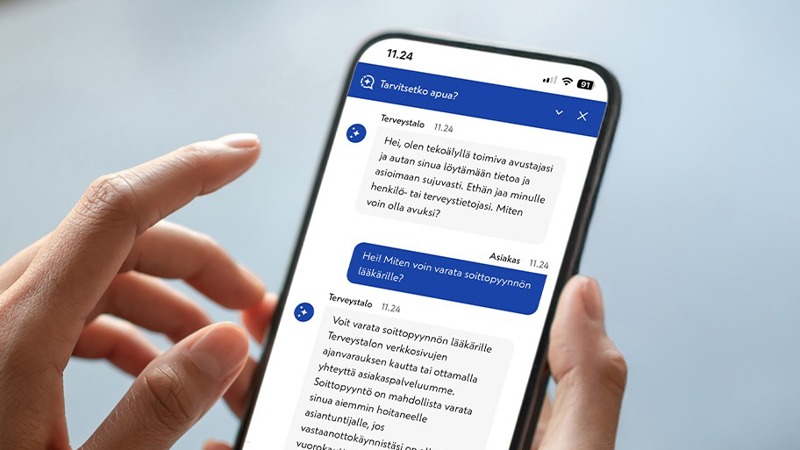The holiday is over but did you leave the cap open?
The bottom of a pint or bottle becomes quite familiar to some during vacation as a part of relaxation. Our expert explains what happens to the mind and body when the cap is tightened or completely closed.

Although the total consumption of substances in Finland has decreased in the 2020s, their use seems to have become more common among people who already have had higher consumption. Substance abuse problems are relatively common, because according to various studies, up to half of working-age men and a quarter of women drink too much alcohol. As much as 70 percent of alcohol-dependent persons are involved in working life.
However, reducing or quitting alcohol consumption has many health benefits. The first positive signs of quitting drinking are felt in the morning.
– One of the most significant effects is the improvement of sleep quality and restorative effect. Even two restaurant servings reduce the amount of restorative sleep and postpone the start of the body's recovery, says Terveystalo's senior occupational health development doctor Maaret Helintö.
One serving at a restaurant, such as a small bottle of beer, relaxes and may help you fall asleep. As the body's alcohol tolerance increases, relaxation soon requires two doses, then three. Weaving can insidiously become a partially learned habit, but it can also be unlearned.
How much is too much?
The effect of alcohol is individual. A person's weight has a significant effect on the absorption of alcohol. That's why men tolerate alcohol better than women because of their size, and because of this the risk limits for women and men are different. Even one dose of alcohol can affect the quality of your night's sleep and, with it, your level of alertness. If the risk limits are constantly banging, and a night's sleep cannot be restored, you should think about your own alcohol use, keep days without a drink and seek the advice of an expert.
Limits of moderate risk of alcohol for average-sized, healthy working-age men and women.
One portion = about one 12 cl wine glass or 0.33 medium beer bottle.
| dose per day |
dose per week |
|
| man | 2 | 14 |
| woman | 1 | 7 |
Only positive effects
Alcohol paralyzes the central nervous system, which in turn relaxes the muscles of the upper respiratory tract, meaning that a person snores more easily. This can affect, for example, oxygenation during sleep, which affects the recovery of the body and mind, as well as metabolism. With the cessation of weeding, the liver begins to recover and the mood stabilizes. The metabolism also returns to normal and the excess fluid accumulated in the body by alcohol begins to be removed.
– Stopping drinking starts with honestly calculating the number of portions you drink on a weekly basis, for example, and setting yourself a goal to reduce the number of portions during the next week. For others, the once-through method works better, i.e. the cap tightly closed, says Helintö.
Helintö also urges you to think about situations where you grab a bottle or a pint. If social life focuses on the terrace and bars, could you do something else instead of going there?
– It's good to try to motivate yourself and think about the things that would be better when you stop knitting, advises Helintö.
If reducing or quitting on your own is not possible, you should seek the help of professionals.
– Sadly, very few people come to the reception with this issue. Our purpose is to help, in no case to judge, states Helintö.
More occupational health articles

What is metabolic age and why should you care about it?
A new laboratory study by Terveystalo reveals how your body is aging. Metabolic age makes biological aging visible.

Smooth assistance for your needs – our AI assistant is now at your service
You can now find Terveystalo’s AI assistant on our website — a quick and easy way to get answers based on the information available on our site. For now, the assistant is available only on the Finnish‑language section of our website, but you can chat with it in English.

How technology helps relieve mental stress: "When the load is high, the threshold must be low."
Mental health disorders have overtaken musculoskeletal disorders, which had long been the leading cause of sick leave. Work is changing, and the range of sick leave caused by mental health issues has also changed. We must be able to offer new solutions to this challenge.

Extensive data set of 200,000 samples: Nightingale study reveals link between illness risks and sick leave
Data from the Finnish Nightingale study, which is used in Terveystalo's occupational health services, reveals a clear link between lifestyle-related health risks and sick leave. The exceptionally extensive data set of over 200,000 customers shows that people with a low risk of illness had significantly fewer absences, while those in high-risk groups had more absences. The results highlight the importance of preventive healthcare in ensuring work ability and the competitiveness of companies.

Strong identification speeds up your service experience when calling us
Soon you can identify yourself easily and securely before your call is answered. Read below to see how the identification process works.

Terveystalo's digital services have been awarded the internationally recognized ISO27001 information security certification.
Terveystalo's information security practices, processes, and risk management are in line with international best practices.